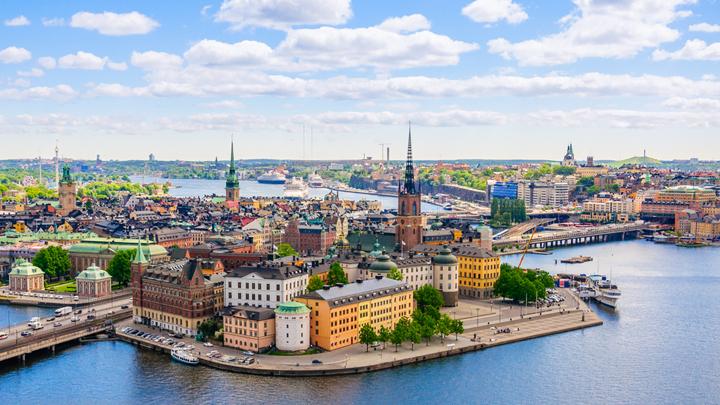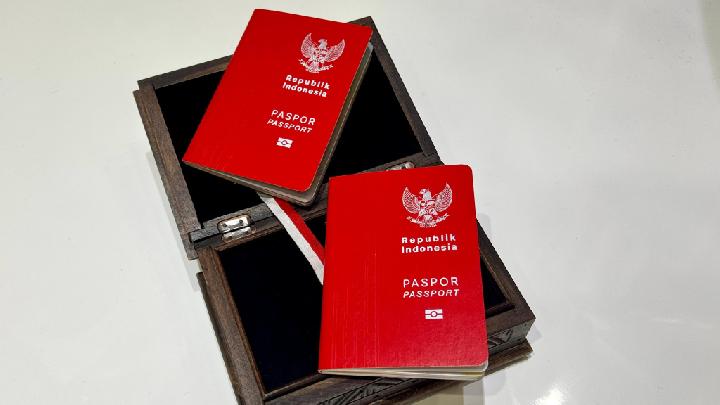TEMPO.CO, Jakarta - Obtaining citizenship, especially through the naturalization process, is a challenging task in many countries. Various factors can be obstacles, making the process of obtaining citizenship complex and time-consuming.
These countries are among the most difficult places to obtain citizenship for several reasons, such as long residency requirements, language proficiency, as well as cultural and religious factors.
Cited from Jagran Josh and Crown Relo, the following are the countries that have strict citizenship issuance:
1. Qatar
Qatar is located in the Persian Gulf and is known for its extraordinary wealth from the natural gas industry. The country is renowned for its stringent requirements to obtain citizenship.
For foreigners who wish to become Qatari citizens, they must continuously reside in the country for 25 years. Proficiency in Arabic, a clean record of behavior, and evidence of sufficient financial resources to support oneself are primary requirements.
Additionally, under Qatari law, dual citizenship is not allowed, so applicants must relinquish their original passport.
Another additional requirement is the possibility of conversion to Islam. Doha News reported that Qatar only grants citizenship to about 50 foreigners per year.
2. Vatican City
Vatican City is the world's smallest sovereign state, with a population of only about 450 citizens. It imposes strict citizenship rules.
Vatican City only grants citizenship in three extraordinary circumstances: if one is a cardinal residing in Vatican City or Rome, serving as a diplomat representing the Holy See, or residing in Vatican City due to working within the Catholic Church.
3. Liechtenstein
Located between Austria and Switzerland, Liechtenstein is a small country of approximately 40,000 people that imposes a lengthy process for obtaining citizenship.
Referring to a report from the Liechtenstein Institute, a scientific research center and academic institution in Bendern, foreigners must reside for a minimum of 30 years before being eligible for naturalization.
However, this residency period can be shortened to 10 years with approval from the local community or through marriage. Marrying a Liechtenstein citizen can shorten the process to just five years.
4. Bhutan
Bhutan is a secluded kingdom in the Himalayan Mountains known for its extremely strict entry policy. This policy applies to tourists and foreigners seeking citizenship there.
For non-Bhutanese foreigners, the process of becoming a Bhutanese citizen requires a minimum of 20 years of residency in Bhutan. According to the Bhutanese Citizenship Act of 1985, during this period, applicants must maintain impeccable behavior and are prohibited from criticizing the monarchy of Bhutan.
The government also reserves the right to reject citizenship applications without any explanation, and even if granted, citizenship can be revoked if the owner later criticizes the king or the country.
5. Saudi Arabia
Saudi Arabia, a wealthy oil country that oversees the holy cities of Mecca and Medina, imposes strict requirements for anyone wishing to become its citizen. Applicants must reside in the country for a minimum of 10 years and be proficient in Arabic.
Furthermore, the official government website states that applicants must also have a clean legal history and be of good moral character. The final decision lies entirely with the Minister of Interior. Saudi Arabia does not allow dual citizenship, so applicants must be willing to renounce their former citizenship.
6. Kuwait
Neighbor to Saudi Arabia, Kuwait also imposes equally stringent citizenship requirements. Under the 1959 Kuwaiti Citizenship Law, an individual can only apply for naturalization after residing in Kuwait for at least 20 years, being fluent in Arabic, and adhering to Islam, either by birth or through conversion.
Like most Gulf countries, Kuwait also does not recognize dual citizenship, making it one of the most difficult countries in the world to obtain citizenship.
7. Switzerland
Switzerland is known to have one of the strictest citizenship processes in Europe. For foreigners who wish to become citizens, they must reside in Switzerland for at least 10 years and hold a permanent residence permit type 'C'.
Proficiency in one of the national languages, namely German, French, Italian, or Romansh, is also a primary requirement. The naturalization process in Switzerland involves a tiered approval from the central government, the canton, and the local government, each with different provisions.
8. China
China is also known for its very strict citizenship rules for foreigners. The People's Republic of China's Citizenship Law does provide opportunities for foreigners to obtain citizenship, typically through family ties with Chinese citizens or for other legitimate reasons. However, the process is very challenging and the chances are almost closed, especially for those without family ties in China.
The exact length of stay or the criteria required for a citizenship application are not explicitly stated. Since the country's establishment, only a few hundred foreigners have successfully obtained citizenship, usually because they are considered to have special privileges.
Because the naturalization process is complicated, most foreigners choose to live in China through other channels, such as work or Z visas. This visa is granted to individuals who have received a job offer from a company in China. It allows the holder to enter and stay in China for an initial period of 30 days.
During this period, the visa holder and the company where they work must apply for a temporary residence permit, which can be valid from 90 days to five years, depending on the employment contract agreed upon.
9. North Korea
North Korea is a closed country often referred to as the "Hermit Kingdom." The country is also known for its mysterious and difficult citizenship process.
Although there is not much official information about the requirements to become a North Korean citizen, a report from Southern Methodist University in Texas states that the authority to grant citizenship lies with the Presidium of the Supreme People's Assembly. Additionally, the country does not allow dual citizenship.
10. Japan
Japan is also one of the countries that imposes strict requirements for foreigners who wish to become its citizens. The Japanese Ministry of Justice states that foreigners must reside continuously for at least five years and exhibit good behavior.
The 1950 Japanese Nationality Act also dictates that applicants must be able to support themselves and not be involved in groups aiming to overthrow the government.
Although Japan does not recognize dual citizenship, language requirements are relatively lenient. The country only requires adequate basic proficiency for daily communication.
11. Austria
Similar to other European Union countries, Austria has one of the longest processes for obtaining citizenship. Non-EU citizens must have a residence permit to stay for more than six months.
Additionally, for those planning to stay longer than 24 months, they are required to sign an integration agreement that mandates their participation in Austria's social, economic, and cultural life. When they have been permanent residents for 10 years and wish to apply for citizenship, they must also renounce their original citizenship.


















































